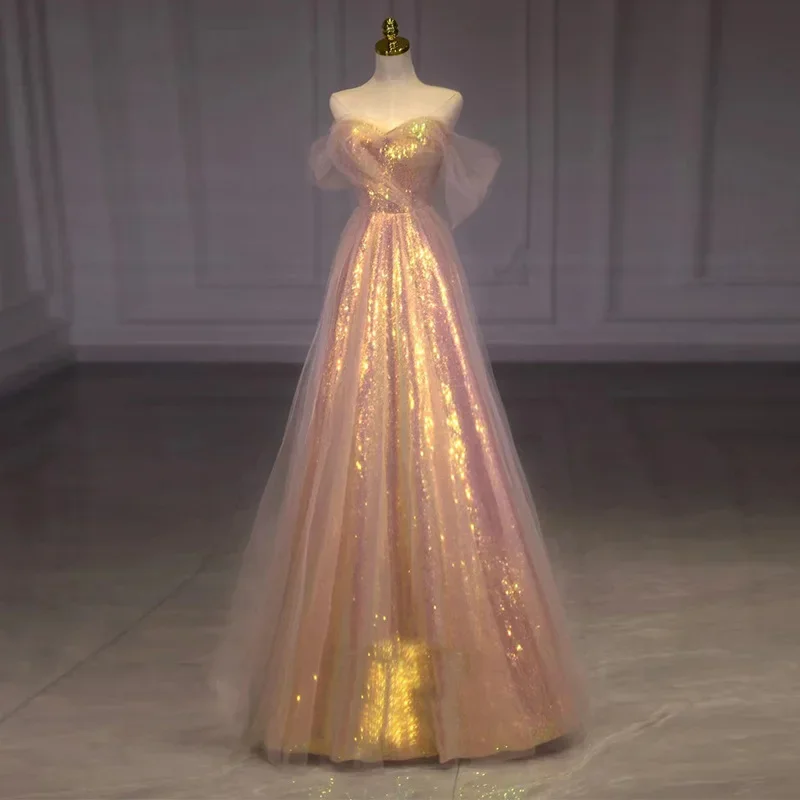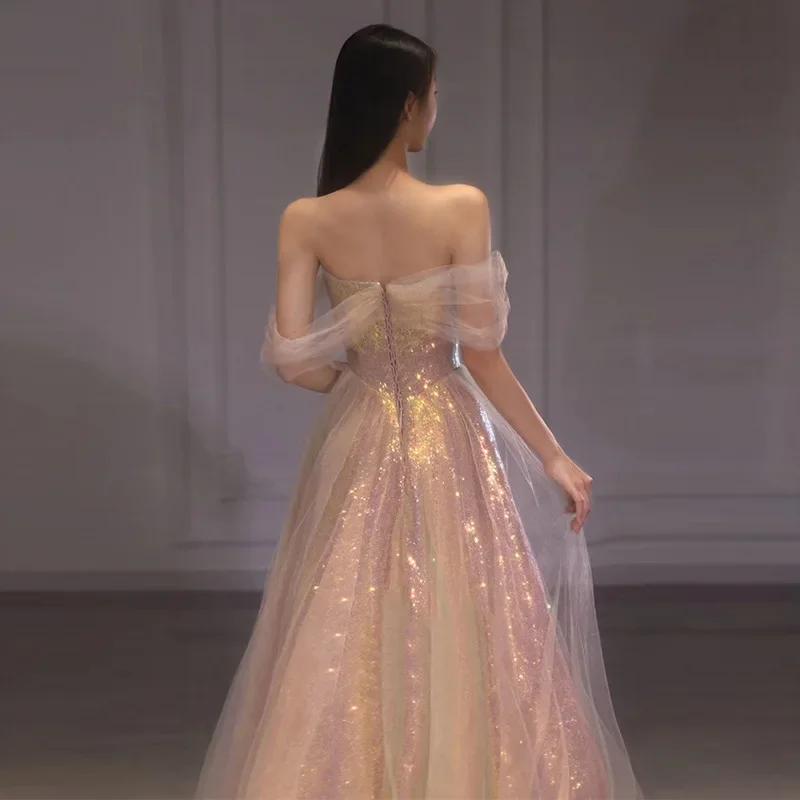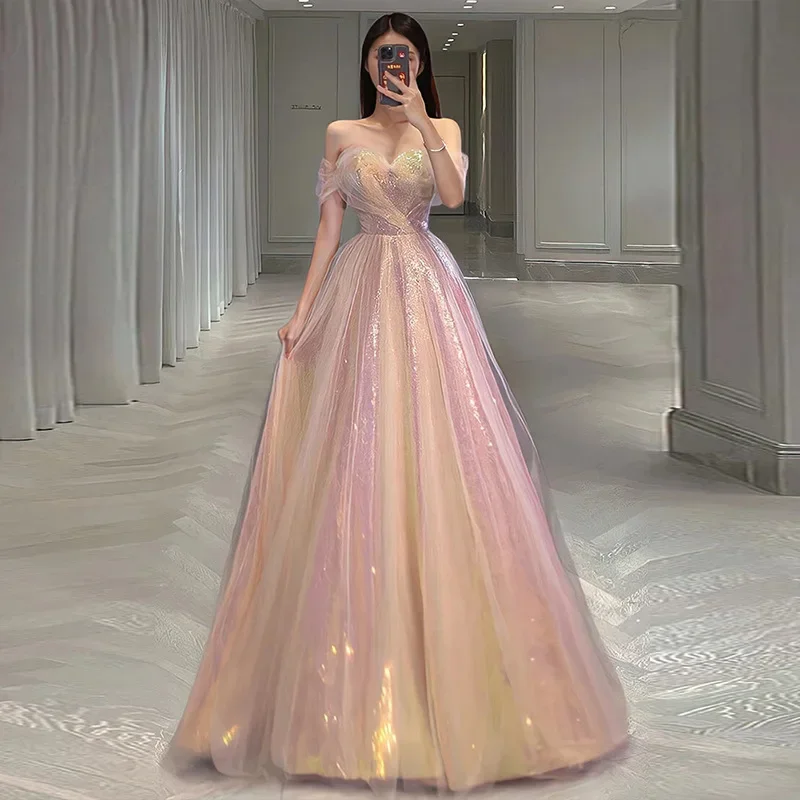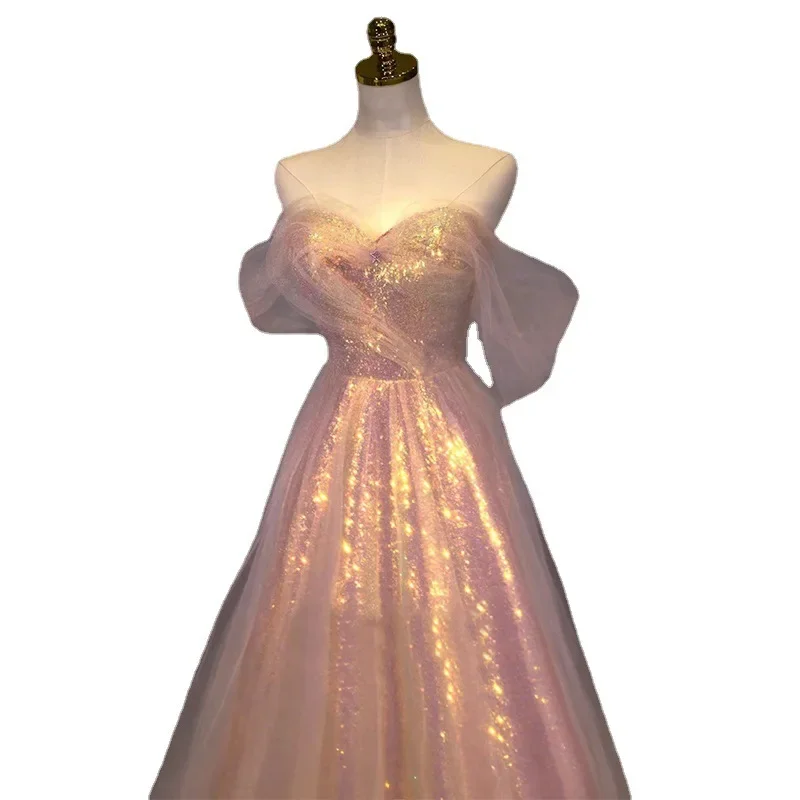Introduction to Formal Dress for Women
Formal dress for women encompasses a range of clothing styles and traditions designed for occasions that require a high level of elegance and sophistication. These events typically include weddings, gala dinners, awards ceremonies, and other prestigious gatherings. The essence of formal wear is to reflect a sense of occasion and adhere to traditional standards of elegance. This guide will delve into the various aspects of what is formal dress for female, including different types, key elements, and how to choose the right outfit for any formal event.

Types of Formal Dresses
Evening Gowns
Evening gowns are the epitome of formal wear for women. They are usually floor-length and come in a variety of styles, including A-line, ball gown, mermaid, and sheath. An evening gown’s length and fabric contribute significantly to its formality. Luxurious fabrics such as silk, satin, and velvet are commonly used, providing a polished and sophisticated look.
Evening gowns often feature intricate details like beading, sequins, or lace, which enhance their elegance. The choice of neckline can range from off-the-shoulder to high neck, depending on personal preference and the nature of the event. For formal events, evening gowns are typically worn with high heels and elegant accessories like statement jewelry.
Cocktail Dresses
What is formal dress for female? Cocktail dresses are shorter than evening gowns and are typically knee-length or slightly above. They are suitable for semi-formal and cocktail events, which are less formal than black-tie affairs but still require a polished look. Cocktail dresses often feature bold colors and patterns, and they can be designed with various embellishments.
These dresses can be made from materials like silk, chiffon, or even structured fabrics, which lend a refined look without being as formal as evening gowns. Pairing a cocktail dress with stylish flats or low heels is common, especially if comfort is a priority. Accessories for cocktail dresses can range from delicate jewelry to more daring statement pieces, depending on the dress’s design and the event’s formality.
Ball Gowns
Ball gowns are a classic choice for ultra-formal events such as state balls or grand weddings. They are characterized by their full skirts and fitted bodices, creating a dramatic and elegant silhouette. Ball gowns are usually made from luxurious fabrics like taffeta, satin, or organza.
The defining feature of a ball gown is its voluminous skirt, which can be achieved through layers of fabric, crinoline, or tulle. These gowns often have elaborate designs with intricate embroidery, beading, or other decorative elements. Ball gowns are usually worn with high heels and can be complemented with elegant gloves and tiaras for a truly royal look.
Dinner Dresses
Dinner dresses are versatile and can be worn for more casual formal events such as dinner parties or less formal receptions. They are generally knee-length or slightly below and are often designed to be both stylish and comfortable. Dinner dresses can be made from various materials, including silk, cotton, and wool blends, depending on the season and occasion.
These dresses typically feature simpler designs compared to evening gowns or ball gowns, making them suitable for events where a high level of formality is not required. Accessories for dinner dresses can be less elaborate, with a focus on subtle elegance. Low heels or elegant flats are appropriate choices for footwear.
Choosing the Right Formal Dress
Consider the Event Type
The type of formal event you are attending plays a crucial role in determining your dress choice. For black-tie events, an evening gown or ball gown is appropriate, while cocktail dresses are suitable for less formal gatherings. Understanding the event’s dress code will guide you in selecting the right style and level of formality for your dress.

What is formal dress for female? For weddings, the formality of your dress may also depend on the venue and time of day. A formal evening wedding often calls for a long gown, whereas a daytime wedding might allow for a stylish cocktail dress or a shorter formal dress. Always consider the specific details of the invitation to ensure you adhere to the expected dress code.
Fabric and Color Choices
Fabric and color are significant factors in choosing a formal dress. Luxurious materials like silk, satin, and velvet are traditional choices for formal occasions, while lighter fabrics like chiffon or organza may be used for less formal events. The choice of fabric should complement both the style of the dress and the season of the event.
Color is also an important consideration. Classic colors like black, navy, and deep jewel tones are often chosen for their timeless elegance. However, formal dresses can also come in vibrant colors or metallics, especially for evening events. When selecting a color, consider what complements your skin tone and aligns with the event’s formality.
Body Shape and Fit
Selecting a dress that flatters your body shape is essential for achieving a sophisticated look. Evening gowns and ball gowns, for instance, should enhance your figure while providing comfort. It’s important to choose a dress that fits well and highlights your best features. Alterations may be necessary to ensure a perfect fit, particularly for formal dresses which often require precision in tailoring.
Understanding your body shape can help in choosing the right dress silhouette. What is formal dress for female? For example, A-line gowns are flattering for many body types, while mermaid styles emphasize curves. Regardless of the silhouette, the key is to find a dress that you feel confident and comfortable in.
Accessorizing Formal Dresses
Accessories play a crucial role in completing a formal outfit. For evening gowns and ball gowns, statement jewelry such as chandelier earrings or a bold necklace can enhance the overall look. It’s important to balance accessories so they complement rather than overpower the dress.
For cocktail dresses or dinner dresses, opt for more subtle accessories. Delicate jewelry, such as a simple pendant necklace or stud earrings, can provide a touch of elegance without being too dramatic. The choice of handbag and shoes should also align with the formality of the dress, with options like clutches and classic heels being popular choices.
Styling Tips for Formal Dresses
Hair and Makeup
The styling of your hair and makeup should complement your formal dress. For evening gowns and ball gowns, elegant updos or sophisticated hairstyles are often appropriate. These styles keep the hair off the shoulders and draw attention to the dress and accessories. Makeup should be polished and refined, with options like a classic red lip or a smoky eye, depending on your personal style and the event’s formality.
For cocktail dresses, you might choose a more relaxed hairstyle, such as soft waves or a sleek ponytail. Makeup can be a bit more playful while still maintaining a polished appearance. Experiment with different looks to find what best complements your dress and personal style.
Footwear Considerations
Choosing the right footwear is crucial for a formal dress. High heels are traditionally worn with evening gowns and ball gowns, providing a classic and elegant look. However, if comfort is a priority, consider options like embellished flats or low heels that still maintain a formal appearance.
For cocktail dresses and dinner dresses, you have more flexibility in footwear choices. Stylish flats, low heels, or even elegant wedges can work well, depending on the dress and your comfort level. Ensure that your shoes complement the dress’s style and add to your overall look without overshadowing it.
Seasonal Adaptations
Formal dresses can be adapted for different seasons by selecting appropriate fabrics and colors. For winter events, opt for dresses made from heavier fabrics like velvet or incorporating long sleeves. During warmer months, lighter fabrics such as chiffon or silk are ideal. Seasonal color trends can also influence your choice, with darker hues and jewel tones being popular in colder months, and lighter shades or pastels in warmer weather.

Maintaining Your Formal Dress
Care and Storage
Proper care and storage of formal dresses are essential for preserving their condition. Follow the care instructions on the dress label, and consider professional cleaning for intricate fabrics or embellishments. Store formal dresses in a cool, dry place, ideally in a garment bag, to protect them from dust and damage.
Preparing for Special Events
Before attending a formal event, ensure your dress is in pristine condition. Check for any loose threads, stains, or other issues that need attention. Make sure your dress fits well and is comfortable to wear for an extended period. By taking these steps, you can ensure that you look and feel your best on the special day.
Conclusion: Embracing Formal Wear with Confidence
Understanding the different types of formal dresses and how to choose the right one can enhance your confidence and elegance at any event. Whether you opt for an evening gown, cocktail dress, ball gown, or dinner dress, the key is to select an outfit that aligns with the event’s formality and your personal style. By considering factors like fabric, color, fit, and accessories, you can create a polished and sophisticated look that makes a lasting impression. Embrace the opportunity to showcase your style and enjoy the elegance of formal wear with confidence and grace.
Tags: Classic Elegance Dress, Fashion Dress, simple dress